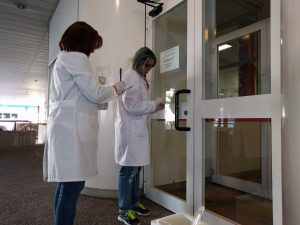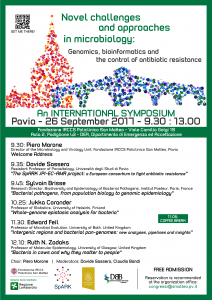Novel challenges and approaches in microbiology: Genomics, bioinformatics and the control of antibiotic resistance
- 10, 04, 2017
- Category News
The increasing amount of bacterial strains resistant to antibiotics represents one of the most important issues in biomedical research nowadays. Both the number of ill and dead patients are growing more and more, with an estimation of 25,000 deaths per year. The lack of strategies alternative to the massive use of antibiotics makes this issue challenging and very important for global health, as highlighted by memoranda from American and European administrations, and by specific calls for proposal, as the european call JPIAMR.
The European project SpARK was born in this exact context, seeking to use novel strategies in order to understand and control the antibiotic resistance phenomenon, focusing on one of the most important pathogens showing resistance: Klebsiella pneumoniae.
The project started on April 1st, 2017, for 3 years of duration, in which the area of Pavia will be used as a model. Researchers are collecting samples in hospitals and in every other environment potentially inhabited by the bacterium. Healthy volunteers, farm and wild animals, water, anthropic and non-anthropic environments are being sampled, in order to be analysed through innovative techniques of genome analysis and bioinformatics, enabling to reconstruct bacterial strains movements and estimate the presence of specific routes of diffusion from and to nosocomial wards.
The project addresses important questions: does the use of antibiotics in farm generate antibiotic resistance that can be harmful for humans? What are the diffusion routes of the bacterium in the environment?
After six months since the start of the project, the partners met in Pavia to discuss the results obtained so far and the future strategies. The Italian partners in the project, Dr. Piero Marone (Director of Microbiology and Virology Unit at Policlinico San Matteo) and Dr. Davide Sassera, organized an international symposium (September 26th, 2017).
These are the partners of the project holding seminars at the symposium:
Edward Feil, professor of Microbial Evolution, University of Bath, United Kingdom.
Sylvain Brisse, Research Director, Biodiversity and Epidemiology of Bacterial Pathogens, Institut Pasteur, Paris, France.
Ruth Zadoks, professor of Molecular Epidemiology, University of Glasgow, United Kingdom.
Jukka Corander, professor of Statistics, University of Helsinki, Finland.

